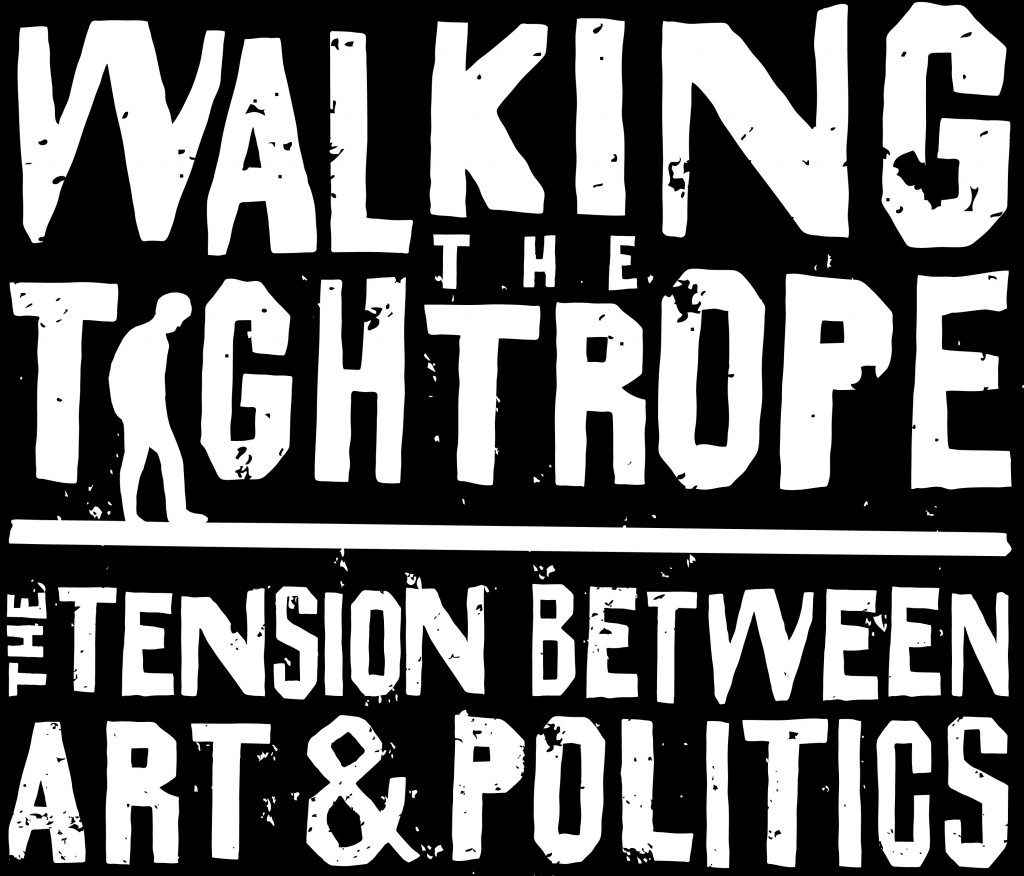27 Mar 2017 | Awards, Israel, Middle East and North Africa, News and features
[vc_row][vc_column][vc_column_text]
Breaking the Silence, an Israeli organisation consisting of Israeli veteran combatants, aims to collect and share testimonies about the realities of military operations in the Occupied Territories. Since 2004, the group has collected over 1,000 (mainly anonymous) statements from Israelis who have served their military duty in the West Bank and Gaza.
In 2014, Breaking the Silence published 111 testimonies from over 60 soldiers who served in Operation Protective Edge in Gaza. The organisation reached out to soldiers directly after the cessation of bombing in Gaza and published a book of its findings in May 2015. For publishing these frank accounts Breaking the Silence has come under repeated attack from the Israeli government.
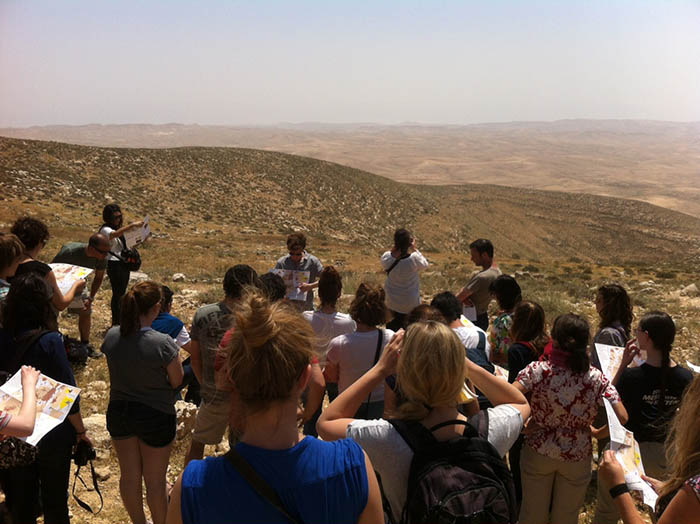
A Breaking the Silence guided tour of Hebron and the South Hebron Hills
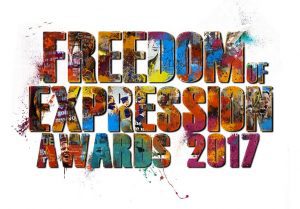 In 2016 pressure on the organisation became particularly pointed and personal, with state-sponsored legal challenges, denunciations from the Israeli cabinet, physical attacks on staff members and damages to property. Led by Israeli politicians including the prime minister, and defence minister, there have been persistent attempts to force the organisation to identify a soldier whose anonymous testimony was part of a publication raising suspicions of war crimes in Gaza. Losing the case would set a precedent that would make it almost impossible for Breaking the Silence to operate in the future. The government has also recently enacted a law that would ban the organisation’s widely acclaimed high school education programme.
In 2016 pressure on the organisation became particularly pointed and personal, with state-sponsored legal challenges, denunciations from the Israeli cabinet, physical attacks on staff members and damages to property. Led by Israeli politicians including the prime minister, and defence minister, there have been persistent attempts to force the organisation to identify a soldier whose anonymous testimony was part of a publication raising suspicions of war crimes in Gaza. Losing the case would set a precedent that would make it almost impossible for Breaking the Silence to operate in the future. The government has also recently enacted a law that would ban the organisation’s widely acclaimed high school education programme.
Following the attacks on the organisation, hundreds of soldiers began to break their own silence in a spontaneous outpouring of support for the group. The soldiers, who are non-Breaking the Silence testifiers, posted pictures on social media of their army service. This included testimonies from soldiers who served in the First and Second Intifadas and even the Lebanon War. Public figures, musicians, artists, and hundreds of individuals, were involved in this wave of support.
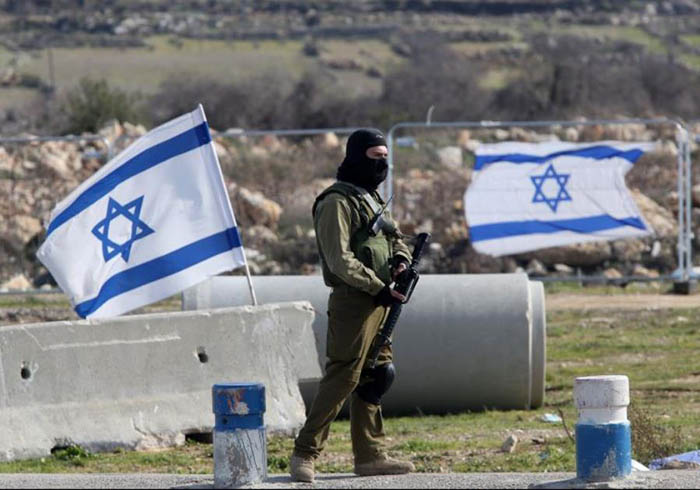
Israel Defence Forces soldier manning a checkpoint
In March 2017, Israel’s state prosecutor asked a court to dismiss its previous request to force Breaking the Silence to provide details that were liable to expose the identity of a soldier whose testimony raised suspicions of war crimes.[/vc_column_text][/vc_column][/vc_row][vc_row full_width=”stretch_row_content” equal_height=”yes” el_class=”text_white” css=”.vc_custom_1490258749071{background-color: #cb3000 !important;}”][vc_column width=”1/2″][vc_custom_heading text=”Support the Index Fellowship.” font_container=”tag:p|font_size:28|text_align:center” use_theme_fonts=”yes” link=”url:https%3A%2F%2Fwww.indexoncensorship.org%2Fsupport-the-freedom-of-expression-awards%2F|||”][vc_column_text]
By donating to the Freedom of Expression Awards you help us support
individuals and groups at the forefront of tackling censorship.
Find out more
[/vc_column_text][/vc_column][vc_column width=”1/2″ css=”.vc_custom_1490258649778{background-image: url(https://www.indexoncensorship.org/wp-content/uploads/2016/04/donate-heads-slider.jpg?id=75349) !important;background-position: center !important;background-repeat: no-repeat !important;background-size: cover !important;}”][/vc_column][/vc_row][vc_row][vc_column][vc_basic_grid post_type=”post” max_items=”4″ element_width=”6″ grid_id=”vc_gid:1490773732537-194f8bf9-6216-9″ taxonomies=”8734″][/vc_column][/vc_row]
7 Feb 2017 | Awards, News and features, Press Releases
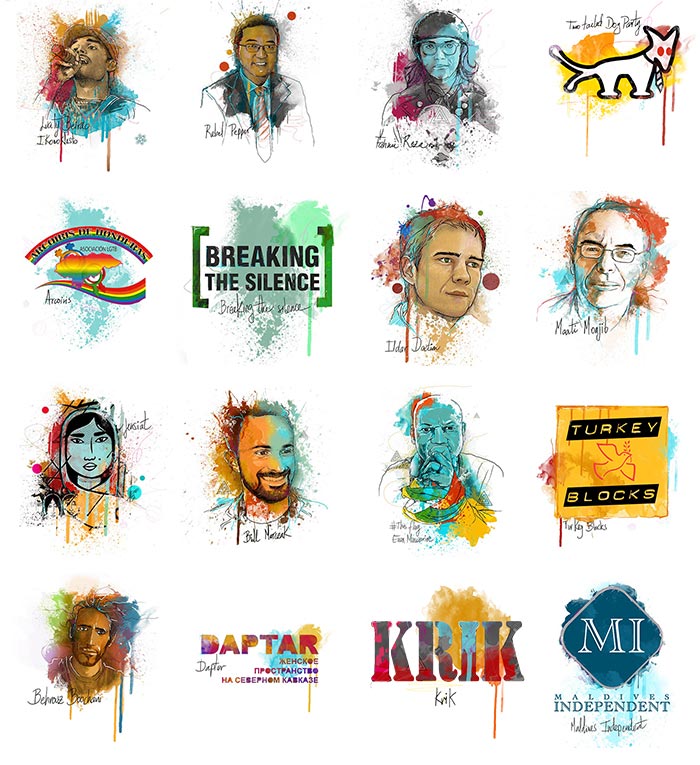 Judges include actor Noma Dumezweni; former Vanity Fair editor Tina Brown
Judges include actor Noma Dumezweni; former Vanity Fair editor Tina Brown
- Sixteen courageous individuals and organisations who fight for freedom of expression in every part of the world
A Zimbabwean pastor who was arrested by authorities last week for his #ThisFlag campaign, an Iranian Kurdish journalist covering his life as an interned Australian asylum seeker, one of China’s most notorious political cartoonists, and an imprisoned Russian human rights activist are among those shortlisted for the 2017 Index on Censorship Freedom of Expression Awards.
Drawn from more than 400 crowdsourced nominations, the shortlist celebrates artists, writers, journalists and campaigners overcoming censorship and fighting for freedom of expression against immense obstacles. Many of the 16 shortlisted nominees are regularly targeted by authorities or by criminal and extremist groups for their work: some face regular death threats, others criminal prosecution or exile.
“The creativity and bravery of the shortlist nominees in challenging restrictions on freedom of expression reminds us that a small act — from a picture to a poem — can have a big impact. Our nominees have faced severe penalties for standing up for their beliefs. These awards recognise their courage and commitment to free speech,” said Jodie Ginsberg, CEO of campaigning nonprofit Index on Censorship.
Awards are offered in four categories: arts, campaigning, digital activism and journalism.
Nominees include Pastor Evan Mawarire whose frustration with Zimbabwe’s government led him to the #ThisFlag campaign; Behrouz Boochani, an Iranian Kurdish journalist who documents the life of indefinitely-interned Australian asylum seekers in Papua New Guinea; China’s Wang Liming, better known as Rebel Pepper, a political cartoonist who lampoons the country’s leaders; Ildar Dadin, an imprisoned Russian opposition activist, who became the first person convicted under the country’s public assembly law; Daptar, a Dagestani initiative tackling women’s issues like female genital mutilation that are rarely discussed publicly in the country; and Serbia’s Crime and Corruption Reporting Network (KRIK), which was founded by a group of journalists to combat pervasive corruption and organised crime.
Other nominees include Hungary’s Two-tail Dog Party, a group of satirists who parody the country’s political discourse; Honduran LGBT rights organisation Arcoiris, which has had six activists murdered in the past year for providing support to the LGBT community and lobbying the country’s government; Luaty Beirão, a rapper from Angola, who uses his music to unmask the country’s political corruption; and Maldives Independent, a website involved in revealing endemic corruption at the highest levels in the country despite repeated intimidation.
Judges for this year’s awards, now in its 17th year, are Harry Potter actor Noma Dumezweni, Hillsborough lawyer Caiolfhionn Gallagher, former Vanity Fair editor Tina Brown, designer Anab Jain and music producer Stephen Budd.
Dumezweni, who plays Hermione in the stage play Harry Potter and the Cursed Child, was shortlisted earlier this year for an Evening Standard Theatre Award for Best Actress. Speaking about the importance of the Index Awards she said: “Freedom of expression is essential to help challenge our perception of the world”.
Winners, who will be announced at a gala ceremony in London on 19 April, become Index on Censorship Freedom of Expression Awards Fellows and are given support for their work, including training in areas such as advocacy and communications.
“The GreatFire team works anonymously and independently but after we were awarded a fellowship from Index it felt like we had real world colleagues. Index helped us make improvements to our overall operations, consulted with us on strategy and were always there for us, through the good times and the pain,” Charlie Smith of GreatFire, 2016 Freedom of Expression Awards Digital Activism Fellow.
This year, the Freedom of Expression Awards are being supported by sponsors including SAGE Publishing, Google, Vodafone, media partner CNN, VICE News, Doughty Street Chambers, Psiphon and Gorkana. Illustrations of the nominees were created by Sebastián Bravo Guerrero.
Notes for editors:
- Index on Censorship is a UK-based non-profit organisation that publishes work by censored writers and artists and campaigns against censorship worldwide.
- More detail about each of the nominees is included below.
- The winners will be announced at a ceremony at The Unicorn Theatre, London, on 19 April.
For more information, or to arrange interviews with any of those shortlisted, please contact: Sean Gallagher on 0207 963 7262 or [email protected]. More biographical information and illustrations of the nominees are available at indexoncensorship.org/indexawards2017.
Index on Censorship Freedom of Expression Awards nominees 2017
Arts

Luaty Beirão, Angola
Rapper Luaty Beirão, also known as Ikonoklasta, has been instrumental in showing the world the hidden face of Angolan President José Eduardo dos Santos’s rule. For his activism Beirão has been beaten up, had drugs planted on him and, in June 2015, was arrested alongside 14 other people planning to attend a meeting to discuss a book on non-violent resistance. Since being released in 2016, Beirão has been undeterred attempting to stage concerts that the authorities have refused to license and publishing a book about his captivity entitled “I Was Freer Then”, claiming “I would rather be in jail than in a state of fake freedom where I have to self-censor”.
Rebel Pepper, China
Wang Liming, better known under the pseudonym Rebel Pepper, is one of China’s most notorious political cartoonists. For satirising Chinese Premier Xi Jinping and lampooning the ruling Communist Party, Rebel Pepper has been repeatedly persecuted. In 2014, he was forced to remain in Japan, where he was on holiday, after serious threats against him were posted on government-sanctioned forums. The Chinese state has since disconnected him from his fan base by repeatedly deleting his social media accounts, he alleges his conversations with friends and family are under state surveillance, and self-imposed exile has made him isolated, bringing significant financial struggles. Nonetheless, Rebel Pepper keeps drawing, ferociously criticising the Chinese regime.
Fahmi Reza, Malaysia
On 30 January 2016, Malaysian graphic designer Fahmi Reza posted an image online of Prime Minister Najib Razak in evil clown make-up. From T-shirts to protest placards, and graffiti on streets to a sizeable public sticker campaign, the image and its accompanying anti-sedition law slogan #KitaSemuaPenghasut (“we are all seditious”) rapidly evolved into a powerful symbol of resistance against a government seen as increasingly corrupt and authoritarian. Despite the authorities’ attempts to silence Reza, who was banned from travel and has since been detained and charged on two separate counts under Malaysia’s Communications and Multimedia Act, he has refused to back down.
Two-tailed Dog Party, Hungary
A group of satirists and pranksters who parody political discourse in Hungary with artistic stunts and creative campaigns, the Two-tailed Dog Party have become a vital alternative voice following the rise of the national conservative government led by Viktor Orban. When Orban introduced a national consultation on immigration and terrorism in 2015, and plastered cities with anti-immigrant billboards, the party launched their own mock questionnaires and a popular satirical billboard campaign denouncing the government’s fear-mongering tactics. Relentlessly attempting to reinvigorate public debate and draw attention to under-covered or taboo topics, the party’s efforts include recently painting broken pavement to draw attention to a lack of public funding.
Campaigning
 Arcoiris, Honduras
Arcoiris, Honduras
Established in 2003, LGBT organisation Arcoiris, meaning ‘rainbow’, works on all levels of Honduran society to advance LGBT rights. Honduras has seen an explosion in levels of homophobic violence since a military coup in 2009. Working against this tide, Arcoiris provide support to LGBT victims of violence, run awareness initiatives, promote HIV prevention programmes and directly lobby the Honduran government and police force. From public marches to alternative awards ceremonies, their tactics are diverse and often inventive. Between June 2015 and March 2016, six members of Arcoiris were killed for this work. Many others have faced intimidation, harassment and physical attacks. Some have had to leave the country because of threats they were receiving.
Breaking the Silence, Israel
Breaking the Silence, an Israeli organisation consisting of ex-Israeli military conscripts, aims to collect and share testimonies about the realities of military operations in the Occupied Territories. Since 2004, the group has collected over 1,000 (mainly anonymous) statements from Israelis who have served their military duty in the West Bank and Gaza. For publishing these frank accounts the organisation has repeatedly come under fire from the Israeli government. In 2016 the pressure on the organisation became particularly pointed and personal, with state-sponsored legal challenges, denunciations from the Israeli cabinet, physical attacks on staff members and damages to property. Led by Israeli politicians including the prime minister, and defence minister, there have been persistent attempts to force the organisation to identify a soldier whose anonymous testimony was part of a publication raising suspicions of war crimes in Gaza. Losing the case would set a precedent that would make it almost impossible for Breaking the Silence to operate in the future. The government has also recently enacted a law that would bar the organisation’s widely acclaimed high school education programme.
Ildar Dadin, Russia
A long-term opposition and LGBT rights activist, Ildar Dadin was the first, and remains the only, person to be convicted under Russia’s 2014 public assembly law that prohibits the “repeated violation of the order of organising or holding meetings, rallies, demonstrations, marches or picketing”. Attempting to circumvent this restrictive law, Dadin held a series of one-man pickets against human rights abuses – an enterprise for which he was arrested and sentenced to three years imprisonment in 2015. In November 2016, website Meduza published a letter smuggled to his wife in which Dadin wrote that he was being tortured and abuse was endemic in Russian jails. The letter, a brave move for a serving prisoner, had wide resonance, prompting a reaction from the government and an investigation. Against his will, Dadin was transferred and disappeared within the Russian prison system until a wave of public protest led to his location being revealed in January 2017. Dadin was released on February 26 after a supreme court order.
Maati Monjib, Morocco
A well-known academic who teaches African studies and political history at the University of Rabat since returning from exile, Maati Monjib co-founded Freedom Now, a coalition of Moroccan human rights defenders who seek to promote the rights of Moroccan activists and journalists in a country ranked 131 out of 180 on the Reporters Without Borders Press Freedom Index. His work campaigning for press freedom – including teaching investigative journalism workshops and using of a smartphone app called Story Maker designed to support citizen journalism – has made him a target for the authorities who insist that this work is the exclusive domain of state police. For his persistent efforts, Monjib is currently on trial for “undermining state security” and “receiving foreign funds.”
Digital Activism
 Jensiat, Iran
Jensiat, Iran
Despite growing public knowledge of global digital surveillance capabilities and practices, it has often proved hard to attract mainstream public interest in the issue. This continues to be the case in Iran where even with widespread VPN usage, there is little real awareness of digital security threats. With public sexual health awareness equally low, the three people behind Jensiat, an online graphic novel, saw an an opportunity to marry these challenges. Dealing with issues linked to sexuality and cyber security in a way that any Iranian can easily relate to, the webcomic also offers direct access to verified digital security resources. Launched in March 2016, Jensiat has had around 1.2 million unique readers and was rapidly censored by the Iranian government.
Bill Marczak, United States
A schoolboy resident of Bahrain and PhD candidate in computer science at the University of California, Berkeley, Bill Marczak co-founded Bahrain Watch in 2013. Seeking to promote effective, accountable and transparent governance, Bahrain Watch works by launching investigations and running campaigns in direct response to social media posts coming from activists on the front line. In this context, Marczak’s personal research has proved highly effective, often identifying new surveillance technologies and targeting new types of information controls that governments are employing to exert control online, both in Bahrain and across the region. In 2016 Marczak investigated several government attempts to track dissidents and journalists, notably identifying a previously unknown weakness in iPhones that had global ramifications.
#ThisFlag and Evan Mawarire, Zimbabwe
In May 2016, Baptist pastor Evan Mawarire unwittingly began the most important protest movement in Zimbabwe’s recent history when he posted a video of himself draped in the Zimbabwean flag, expressing his frustration at the state of the nation. A subsequent series of YouTube videos and the hashtag Mawarire used, #ThisFlag, went viral, sparking protests and a boycott called by Mawarire, which he estimates was attended by over eight million people. A scale of public protest previously inconceivable, the impact was so strong that private possession of Zimbabwe’s national flag has since been banned. The pastor temporarily left the country following death threats and was arrested in early February as he returned to his homeland.
Turkey Blocks, Turkey
In a country marked by increasing authoritarianism, a strident crackdown on press and social media as well as numerous human rights violations, Turkish-British technologist Alp Toker brought together a small team to investigate internet restrictions. Using Raspberry Pi technology they built an open source tool able to reliably monitor and report both internet shut downs and power blackouts in real time. Using their tool, Turkey Blocks have since broken news of 14 mass-censorship incidents during several politically significant events in 2016. The tool has proved so successful that it has begun to be implemented elsewhere globally.
Journalism

Behrouz Boochani, Manus Island, Papua New Guinea/Australia (he is an Iranian refugee)
Iranian Kurdish journalist Behrouz Boochani fled the city of Ilam in Iran in May 2013 after the police raided the Kurdish cultural heritage magazine he had co-founded, arresting 11 of his colleagues. He travelled to Australia by boat, intending to claim asylum, but less than a month after arriving he was forcibly relocated to a “refugee processing centre” in Papua New Guinea that had been newly opened. Imprisoned alongside nearly 1000 men who have been ordered to claim asylum in Papua New Guinea or return home, Boochani has been passionately documenting their life in detention ever since. Publicly advertised by the Australian Government as a refugee deterrent, life in the detention centre is harsh. For the first 2 years, Boochani wrote under a pseudonym. Until 2016 he circumvented a ban on mobile phones by trading personal items including his shoes with local residents. And while outside journalists are barred, Boochani has refused to be silent, writing numerous stories via Whatsapp and even shooting a feature film with his phone.
Daptar, Dagestan, Russia
In a Russian republic marked by a clash between the rule of law, the weight of traditions, and the growing influence of Islamic fundamentalism, Daptar, a website run by journalists Zakir Magomedov and Svetlana Anokhina, writes about issues affecting women, which are little reported on by other local media. Meaning “diary”, Daptar seeks to promote debate and in 2016 they ran a landmark story about female genital mutilation in Dagestan, which broke the silence surrounding that practice and began a regional and national conversation about FGM. The small team of journalists, working alongside a volunteer lawyer and psychologist, also tries to provide help to the women they are in touch with.
KRIK, Serbia
Crime and Corruption Reporting Network (KRIK) is a new independent investigative website which was founded by a team of young Serbian journalists intent on exposing organised crime and extortion in their country which is ranked as having widespread corruption by Transparency International. In their first year they have published several high-impact investigations, including forcing Serbia’s prime minister to admit that senior officials had been behind nocturnal demolitions in a Belgrade neighbourhood and revealing meetings between drug barons, the ministry of police and the minister of foreign affairs. KRIK have repeatedly come under attack online and offline for their work –threatened and allegedly under surveillance by state officials, defamed in the pages of local tabloids, and suffering abuse including numerous death threats on social media.
Maldives Independent, Maldives
Website Maldives Independent, which provides news in English, is one of the few remaining independent media outlets in a country that ranks 112 out of 180 countries on the Reporters Without Borders Press Freedom Index. In August 2016 the Maldives passed a law criminalising defamation and empowering the state to impose heavy fines and shut down media outlets for “defamatory” content. In September, Maldives Independent’s office was violently attacked and later raided by the police, after the release of an Al Jazeera documentary exposing government corruption that contained interviews with editor Zaheena Rasheed, who had to flee for her safety. Despite the pressure, the outlet continues to hold the government to account.
14 Nov 2014 | Europe and Central Asia, Events, News and features, United Kingdom
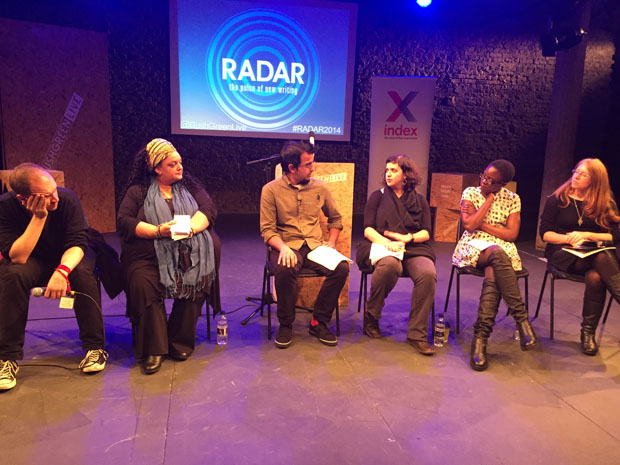
(Photo: Melody Patry)
Should there ever be censorship of the arts was the subject of an Index/Bush Theatre debate, held last night. The event was provoked by the cancellation of Exhibit B in London, and Israeli play The City at this year’s Edinburgh Festival Fringe as well as controversy around this year’s Jewish Film Festival, all in the past few months.
Taking part in the debate were, among others: Stella Odunlami, artist and a cast member of Exhibit B; Zita Holbourne, artist, activist and co-organiser of the campaign to boycott the show; and Arik Eshet, artistic director of Incubator Theatre, which produced The City.
An Exhibit B performer Stella Odunlami told the audience: “We, a group of intelligent and informed actors and performers, have been censored and silenced by protestors, who truly have an ill-informed and misguided perspective of this significant and informative piece of work.
We are appalled, outraged, angry…extremely angry as artists, as human beings. We cannot believe that this is London in 2014. We are appalled that Exhibit B has been cancelled because of the actions of some of the demonstrators.”
Protester Zita Holbourne put her point of view as a poem, she said: “We said to them, Barbican please take that down, 2014 and you want to put black people in a cage? Then telling us you don’t understand our outrage!”
Read their full statements, made to the audience, below.
Stella Odunlami read the statement from the London cast of Exhibit B
It is with utter disappointment that we write these words.
Exhibit B is an important work that has given us an education into the lives of other human beings. We believe everybody has the right to their specific story being told, and this work provided that platform, through the medium of art – living and breathing. It is a shame that these stories will no longer be heard, seen, nor felt. An even greater shame that those who were open and brave enough to purchase a ticket, have now been robbed of that experience.
Exhibit B afforded us the opportunity to explore and engage with our past, while reminding and reawakening us to its impact on the present.
To the 23,000 petitioners who complained that Exhibit B objectified human beings – you missed the point.
This is the 21st Century and we believe that everyone has a choice, a right, an entitlement, to do or say whatever they deem to be right for them. We can accept someone seeing the piece and not liking it-that’s fine. What we cannot accept about the events of Tuesday evening and the subsequent cancellation of Exhibit B, is the physical action that was taken outside of the Vaults, by a minority of the demonstrators who would not even entertain the thought of seeing the piece.
We, a group of intelligent and informed actors and performers, have been censored and silenced by protestors, who truly have an ill-informed and misguided perspective of this significant and informative piece of work.
We are appalled, outraged, angry…extremely angry as artists, as human beings. We cannot believe that this is London in 2014. We are appalled that Exhibit B has been cancelled because of the actions of some of the demonstrators.
We are artists who, after thoughtful and careful deliberation, decide what projects we want to work on. Grown men and women who decided that our contribution to Exhibit B would be worthwhile and important. Who, on Tuesday, were told, by way of the protestor’s force, that we couldn’t make creative and life decisions for ourselves.
That complete strangers knew what was best for us.
For all of us.
Our voices and ideas were deemed not worthy of being shared with the world. This is exactly what Exhibit B is about: we want to denounce oppression, racism and bigotry. We want to denounce actions like this. And the fact that this is still happening in London in 2014, proves even more why this piece is necessary.
The anger and vitriol and hysteria which the protestors have and continue to level at the company of Exhibit B, astounds us.
It doesn’t feel rational. It doesn’ t feel measured. There simply has not been room for an exchange of ideas.
There’s such vulnerability in holding a mirror up to humanity. No one wants to see a representation of themselves oppressed, but it doesn’t mean that we shouldn’t look.
We welcome protest, but surely it’s best to have as much information beforehand, so your opinion is truly informed. Surely as a protestor, you have a duty to ensure your ‘peaceful protest’ really is peaceful. And, surely your right to protest should not impact another person’s freedom of thought and speech.
We are actors and performers who believe that art should be meaningful. Challenging. Provoking.
Not only for us, as participating collaborators in the work, but also for the audience who witness the work.
This project afforded us the opportunity to be the most vulnerable, most on display, silently engaging and being engaged, while exploring themes around other, sex, race, and gender.
Exhibit B was created with love and sensitivity. We are intelligent creatives who made a brave choice to be part of a thought provoking piece of work. As Londoners, we are embarrassed that this has happened in our city, as the show has already been seen by 25,000 people from all over the world, and will continue to tour.
We would like to thank the Barbican for their immense support and Brett Bailey for his inspired work.
Zita Holbourne read Prejudice, Privilege, Power: A Poem for the Barbican (listen to it here)
Barbican announced a human zoo in town
We said to them, Barbican please take that down
2014 and you want to put black people in a cage?
Then telling us you don’t understand our outrage!
Strapped to plane seats, placed in iron masks
And nobody in a whole arts institution thought to ask
Our views before taking a decision to host
Then you have the bare faced audacity to boast
That you’ve placed black people in a human zoo
Going around talking about the good it can do
In challenging racist attitudes and views
But to listen to our concerns you refuse
Shackles and cages at £20 per ticket
But you don’t get why we organised a picket
We don’t need to see a black woman shackled to a bed
To know that racism is rearing its ugly head
We’re forced to battle daily with modern day enslavement
Power and privilege versus our self-empowerment
You are arrogant telling those of us that live with racism every day
What is or is not racist, like we don’t have a say
Let’s make clear that a boycott campaign is not censorship
For your actions and failures you must take ownership
We don’t need a lecture on what it is to be banned
We’re treated like third class citizens in this land
Blocked by institutions, so take a moment, pause
Think about the anger and pain you cause
By insulting our ancestors, our histories
Adding insult to our multiple injuries
If anything is censored it’s the art we produce
Rejected repeatedly by art institutions that refuse
To acknowledge our stories told by us through art
We’ve never had a level playing field from the start
We have a legitimate right to protest
It’s disingenuous of you to suggest
That our demonstration was aggressive
When it was simply passionate and expressive
Using the very arts that you claim to stand for
To demonstrate our strength of feeling outside the door
We made music, danced, lifted our voices in song
Displayed placards that had our beautiful art on
Yet you state that we were extreme and threatening
In contrast, press there say we were peaceful and welcoming
Police confirm there was no damage, injury or arrest
So perhaps it’s you trying to censor our right to protest
Their singing was threatening is what the headlines say
Brandishing placards and drums that barred the way
You accuse us of blocking freedom of expression
But then you call our expression aggression!
What does this say about you as a leading arts institution?
When you resort to this vicious persecution
Barbican you are cowardly and insincere
Resorting to this malicious smear
You simply confirm what we said from the start
You are defending racism in the name of art
When prejudice, privilege and power are combined
Institutional racism becomes clearly defined.
Arik Eshet, Artistic Director of Incubator Theatre, spoke via Skype about the cancellation of The City at the Edinburgh Fringe Festival
The Index/Bush Theatre debate was part of the RADAR Festival.
This article was posted on 14 November 2014 at indexoncensorship.org

 In 2016 pressure on the organisation became particularly pointed and personal, with state-sponsored legal challenges, denunciations from the Israeli cabinet, physical attacks on staff members and damages to property. Led by Israeli politicians including the prime minister, and defence minister, there have been persistent attempts to force the organisation to identify a soldier whose anonymous testimony was part of a publication raising suspicions of war crimes in Gaza. Losing the case would set a precedent that would make it almost impossible for Breaking the Silence to operate in the future. The government has also recently enacted a law that would ban the organisation’s widely acclaimed high school education programme.
In 2016 pressure on the organisation became particularly pointed and personal, with state-sponsored legal challenges, denunciations from the Israeli cabinet, physical attacks on staff members and damages to property. Led by Israeli politicians including the prime minister, and defence minister, there have been persistent attempts to force the organisation to identify a soldier whose anonymous testimony was part of a publication raising suspicions of war crimes in Gaza. Losing the case would set a precedent that would make it almost impossible for Breaking the Silence to operate in the future. The government has also recently enacted a law that would ban the organisation’s widely acclaimed high school education programme.

 Judges include actor Noma Dumezweni; former Vanity Fair editor Tina Brown
Judges include actor Noma Dumezweni; former Vanity Fair editor Tina Brown
 Arcoiris, Honduras
Arcoiris, Honduras Jensiat, Iran
Jensiat, Iran
